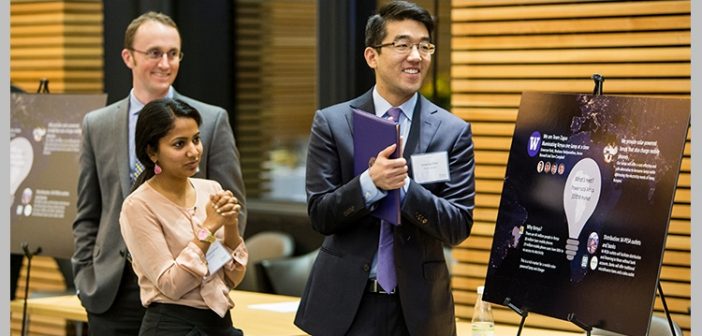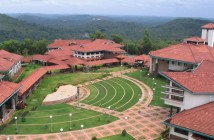Business schools mostly cater to the ever-expanding needs of big business and seldom bother about those at the other end of the spectrum like small businesses or promoting employment opportunities and disadvantaged sections of the population.
It is in this context that the Consulting and Business Development Center set up by Washington University Foster School of Business has become a powerful accelerator of student careers and catalyst of business and job growth in communities that need them the most. It succeeded in generating $100 million in new revenue besides creating or retaining 100,000 jobs across Washington state. In 2015 alone, 350 Foster students and a dozen faculty worked with 100 small businesses and nonprofits, which grew their revenues by $8.9 million.
How did all this happen? Way back in the 1990s, Emeritus Professor Thad Spratlan, had been deploying student consulting teams to spur growth in minority-owned small businesses, creating jobs and wealth. Two students, Michael Verchot (MBA 1995) and Paul Pressley (MBA 1995), got themselves involved in such a project. They started to make plans to help businesses and employment generation in communities that were in need for such opportunities.
They found support in the newly-appointed dean William Bradford, whose seminal studies proved both foundation and inspiration.
“My thought was that we are a public university,” says Bradford. “So we needed to contribute not only to the Boeings and the Microsofts, but also to small firms and those in less economically developed areas of the state.”
Bradford approved the UW Business and Economic Development Program in fall of 1995, and appointed Verchot director. The first student consulting projects debuted the year after. Verchot confesses that at that point, they had plans only for about six or 10 student teams working with companies in inner-city Seattle to help them grow.
In the 20 years since its creation, the idea has become the Consulting and Business Development Center. And that Center has become a powerful accelerator of student careers and catalyst of business and job growth in communities across the state—and the nation.
Verchot attributes its quick growth to making use of opportunities with a philosophy borrowed from tech firms like Microsoft, with their iterative versions 1.0, 2.0, 3.0, ad infinitum. “Speed to market and continually improve,” he says.
The Center quickly expanded MBA consulting program with undergraduate programs. It entered into partnerships with influential institutions such as Safeco, Wells Fargo and Seattle Rotary. It tapped Foster alumni and Rotary experts to mentor and advise students and business owners. It brokered professional insurance, legal and management advice for client businesses, and eventually preferred access to small business loans.
It offered scholarships to enroll clients in Foster Executive Education courses and developed customized small business programs to serve minority entrepreneurs in Seattle and small businesses in Yakima and the Tri-Cities. It formed partnerships with Tribes to support job growth, launched MBAs and MPAs onto non-profit boards, and created scholarships for under-represented minority students.
This is not all. The Center also has helped several other B-schools across the country set up similar projects. It partnered with JPMorgan Chase in 2012 to host a national conference that annually convenes business schools, financial institutions and policy makers.
The aim is to create a collaborative national network, with the Foster Center at the hub and an “open source” ethos. The big-picture goal is to reach the tipping point at which centers of small business development become as ubiquitous a feature of American B-schools as centers of entrepreneurship and global business are today.




